What Smells Do Mosquitoes Hate? 12 Great Options
-

- Last updated:

When it’s hot outside, and humidity levels reach 70–80%, mosquitoes get into the “biting mood”. While they don’t feed solely on human blood, females need it to reproduce. So, the question is how do you handle these bugs? If you’re dealing with a large-scale infestation, insecticides are your best bet. But what if the problem isn’t that big and you don’t have a spray at hand?
We have good news for you: mosquitoes are afraid of certain smells, such as lavender, cinnamon, and lemongrass. When used properly, these odors will be a powerful tool against mozzies. How do you use them properly, though? And what does the complete list of mosquito-repelling scents look like? Read on to find out!
The Science Behind Mosquito-Deterring Odors
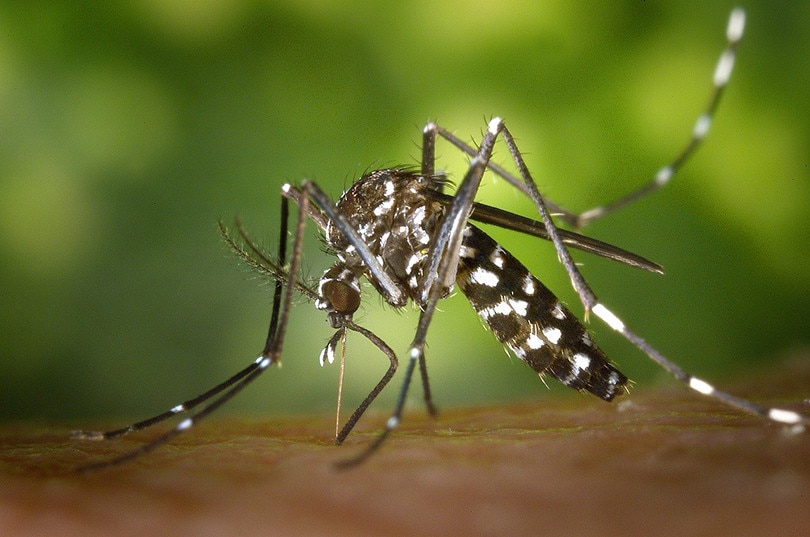
Just like humans, insects find certain smells disorienting, confusing, and even frightening. If we take mosquitoes, pretty much anything that contains geraniol, linalool, and citronella¹ is an instant turn-off. And there are quite a few plants and fruits that are rich in these chemicals. Essentially, it all comes down to finding the scents that make these bugs keep their distance while filling the room with a lovely aroma.
For example, while garlic is a very powerful repellant, you probably won’t like eating it every single day. Peppermint, in turn, has that fresh, natural smell that most of us like. The vast majority of repellant sprays or anti-bug lotions include at least some of these scents. So, you can either invest in that or do your own picking. Mixing some of these scents can be lots of fun!
The 12 Smells That Mosquitoes Hate
1. Lemongrass/Citronella Oil
Mosquitoes have an extremely strong sense of smell, and we can use that to our advantage. Now, both citronella and lemongrass (distant cousins) are highly effective as natural repellants. That’s because they’re rich in geraniol. You’ll find them in lotions, sprays, pellets, and all kinds of other products. While they won’t make the mosquitoes drop dead, these plants will “confuse” the bugs by blocking human smells that attract them.
More importantly, lemongrass oil is officially recommended by the CDC against pests. That means you won’t have to worry about any potential side effects. The oil in its purest form will, of course, be more efficient than a couple of lemongrass plants around the backyard. But to extract it, you will have to use the steam distillation technique, which could take time and some trial and error. Lemongrass is edible; citronella is not.

2. Lavender and Rosemary
We all know and love the beautiful lavender leaves, especially their scent. Mosquitoes, in contrast, prefer to stay as far away as possible. Just like with lemongrass, you have two options here. First, you can just plant a bunch of these plants in the garden (preferably right next to standing water and shady areas). Or extract the oil and spray/rub it all over your body.
Even if you pick a bunch of lavenders and put them in a vase in your bedroom, that will still have an effect. Rosemary works very similarly to lavender. This multipurpose herb is praised for its woody, pine-like scent with a touch of mint. You can mix it with lavender to make the spray/lotion even more effective. We recommend putting them under the sun or on a grill to keep mosquitoes away.
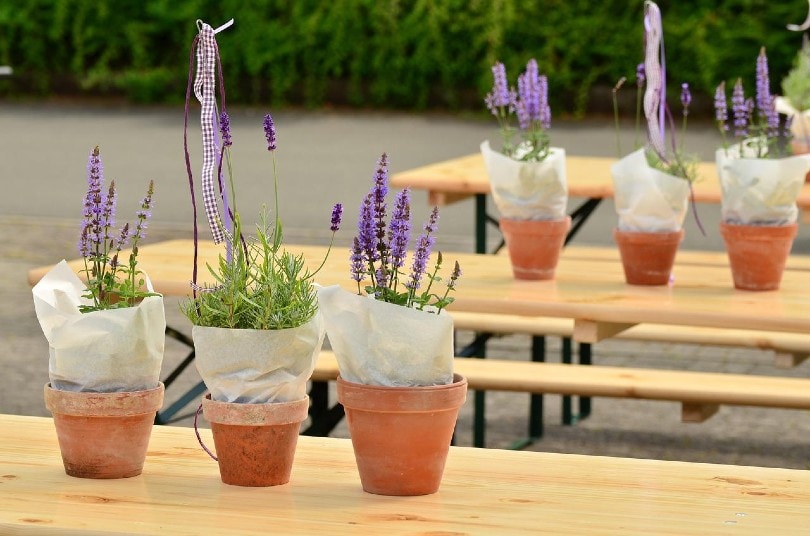
3. Eucalyptus
There are over 700 shrubs and trees in the eucalyptus genus, and they’re mostly recognized for the dried leaves and the oil. It’s NOT recommended to drink the oil, but it does have a soothing effect on the skin and can keep it bite-free all summer long if you use it properly. As for the smell, it’s a combination of citrus with camphor mixed with the unmistakable scent of wood.
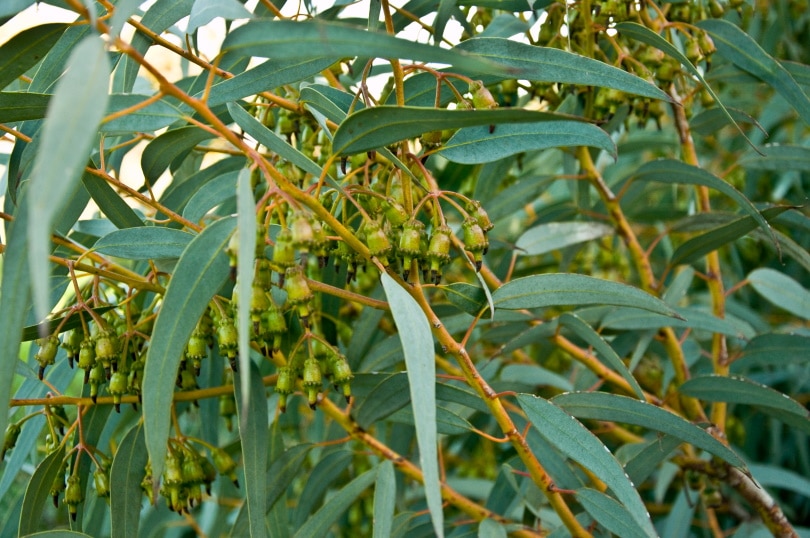
4. Peppermint
In many ways, eucalyptus and peppermint are the same. And they go great with each other, meaning you can mix the two plants to get the ultimate solution to your bug problem. With that said, peppermint has a sharper, more distinctive mint scent. Mosquitoes find that to be disturbing. Unfortunately, low concentrations of peppermint oil won’t do much.
It needs to be at least 15–20% for the oil to have a visible effect. The easiest way to use peppermint against these annoying bugs is to rub it on the skin. Peppermint oil has a therapeutic effect, too. If you got bitten by a mosquito and are now constantly scratching yourself, applying a little bit of this oil will numb that itchy feeling.

5. Basil
This plant right here is a well-respected ingredient in most cuisines around the globe. Basil oil adds a lovely flavor to good old dishes, breathing new life into “boring” recipes. More importantly, it’s a natural pest detergent. If you have a basil plant or two growing in your garden, we bet there aren’t many mozzies flying around there. Put the oil in a spray, and you’ll have a powerful (and free) repellant on your hands!
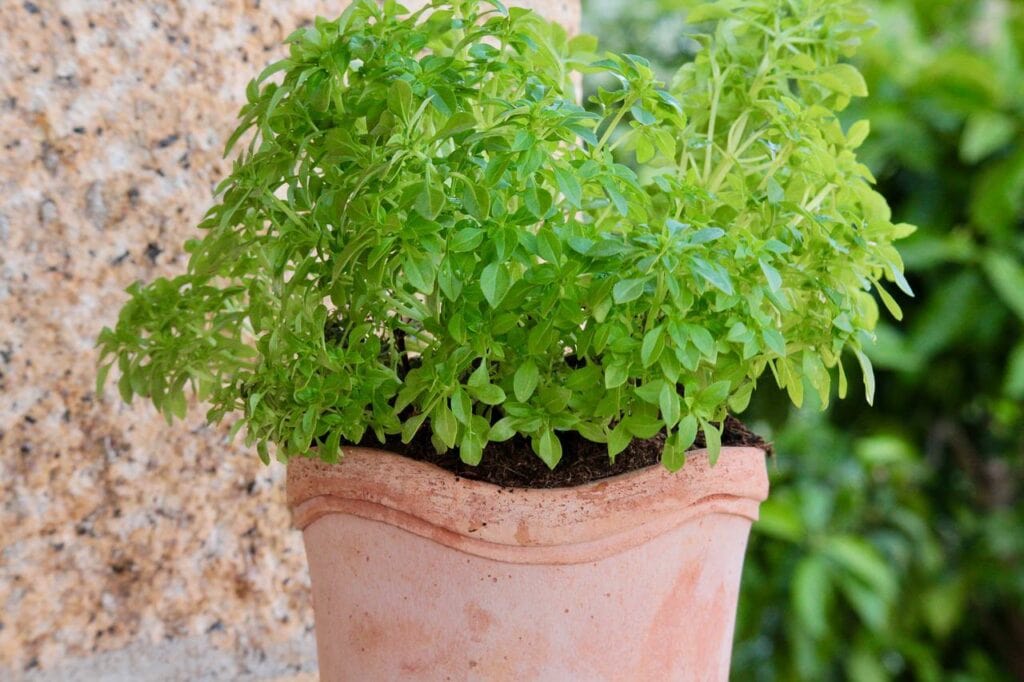
6. Catnip
Also known as the catmint or the field balm, catnip is yet another mosquito-repelling herb. Classified by botanists as the closest relative to basil, it’s the favorite plant of all felines, especially tigers, lions, and cats. This is interesting: the catnip’s oil is rich in nepetalactone—a chemical element that puts kitties in a state of bliss that lasts for 5–10 minutes.
A highly fragrant herb, it has a minty and lemony odor that has proven to be effective against most bugs. According to experts in the field, it gives mosquitoes an itchy and painful feeling. Oh, and by the way, catnip is safe for cats. As long as they don’t eat tons of it, their digestive system will be able to handle it. They might get a bit aggressive, though, but only while the effects last.
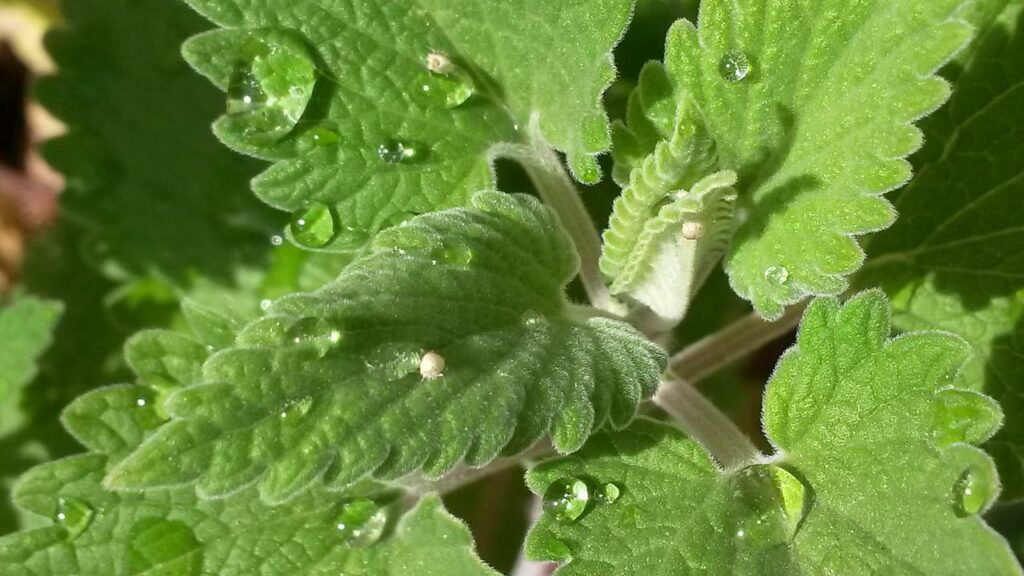
7. Cinnamon Bark
Commonly used to treat an upset stomach, diarrhea, infections, and menstrual cramps, cinnamon bark is a nightmare for mosquito eggs. That’s why it’s often recommended to spread it over standing water (like in the pool, for example), as it will eradicate most of the larvae. There’s nothing quite like enjoying a cup of coffee or chocolate with cinnamon spice and using that same ingredient to kill bugs!
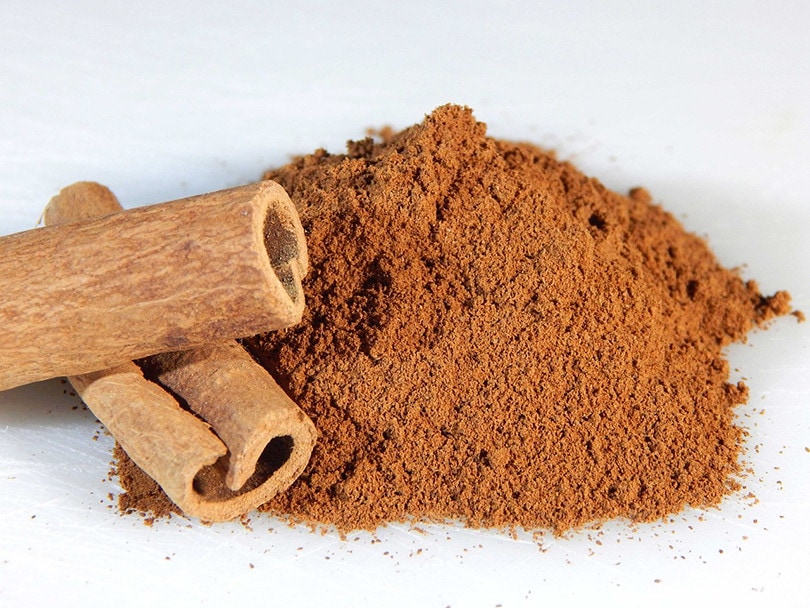
8. Clove Flower Buds
Native to Indonesia, these aromatic buds are mostly used for flavoring. They’re also appreciated for their unique scent that goes into soaps, toothpaste, and various beauty products. The Chinese, in turn, have been using them to treat infections, indigestion, and toothache. While the healing abilities haven’t yet been proven, clove flower buds do have a disorienting effect on mosquitoes.
9. Cedar and Pine Oil
Our ancestors were highly fond of pine and cedar, and not only for their durability, flexibility, and other properties. The oil of both these trees is a strong remedy against a long list of pests. Just like citronella, pine and cedar oils have an all-consuming scent that makes it almost impossible for mosquitoes to “recognize” human odors.
Dealing with a full-on infestation? Try soaking towels and rags in cedar/pine oil and putting them outside of the house (like near the doors and windows). These oils have medical uses as well and can help with muscle pain, sleeping problems, and anxiety. While a 4-ounce bottle isn’t particularly cheap in the States, it will be worth every single penny, especially if you live in the south and are sick of mosquitoes.
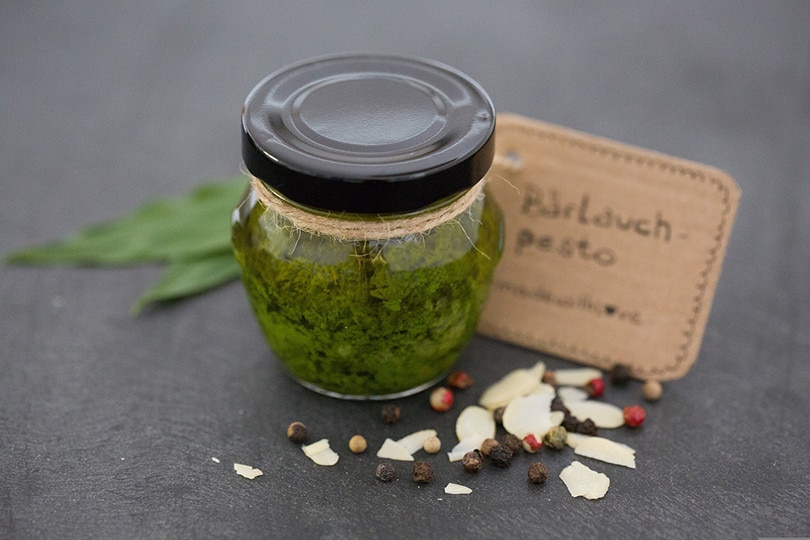
10. Garlic
You don’t have to like garlic per se, but that doesn’t mean it won’t be an effective bug detergent. While we find its smell to be slightly unpleasant, for mosquitoes, it’s highly unsetting. After all, garlic is allegedly deadly for vampires, and mosquitoes are sucking blood! There are lots of sprays on the market that include or are fully based on garlic. If you don’t mind the strong odor, it will be a reasonable investment.
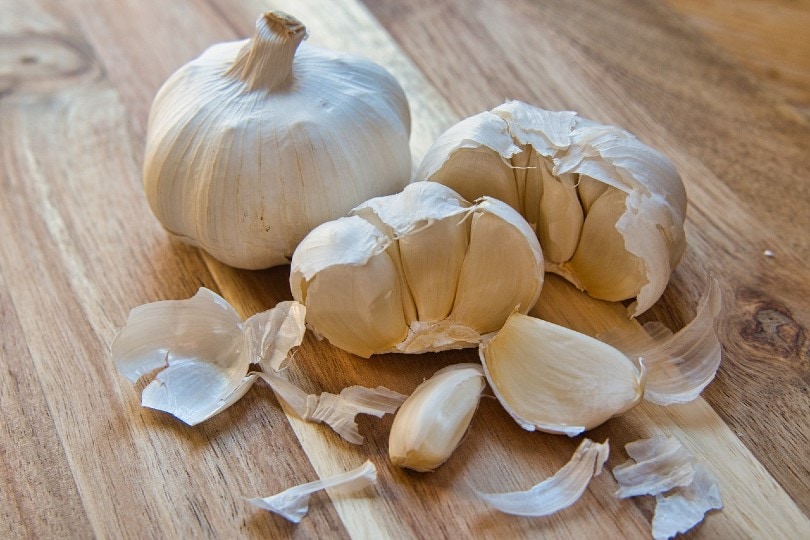
11. Chili Peppers
Ready to take things up a notch and prevent mosquitoes from ganging up on you? A chili pepper will be the perfect “weapon” for that. How do you use it, though? Simple: just add a little bit of spice to your everyday dishes, and you’ll instantly see the result. Instead of going head first to taste your blood, insects will circle back, stunned by the strong odors.

12. Grapefruit
Fruits can also serve as anti-mosquito repellants. Now, grapefruits are known to be rich in vitamin C (and other vitamins/minerals), instrumental in losing weight, and perfect as a snack in the middle of a hot day. As a nice bonus, eating one raw or putting it in a drink will make you “uninviting” for mozzies. Or, better yet, squeeze the oil out and put it on your body.
Grapefruit skin is rich in nootkatone, a chemical compound that scares most mosquito species living on the planet.
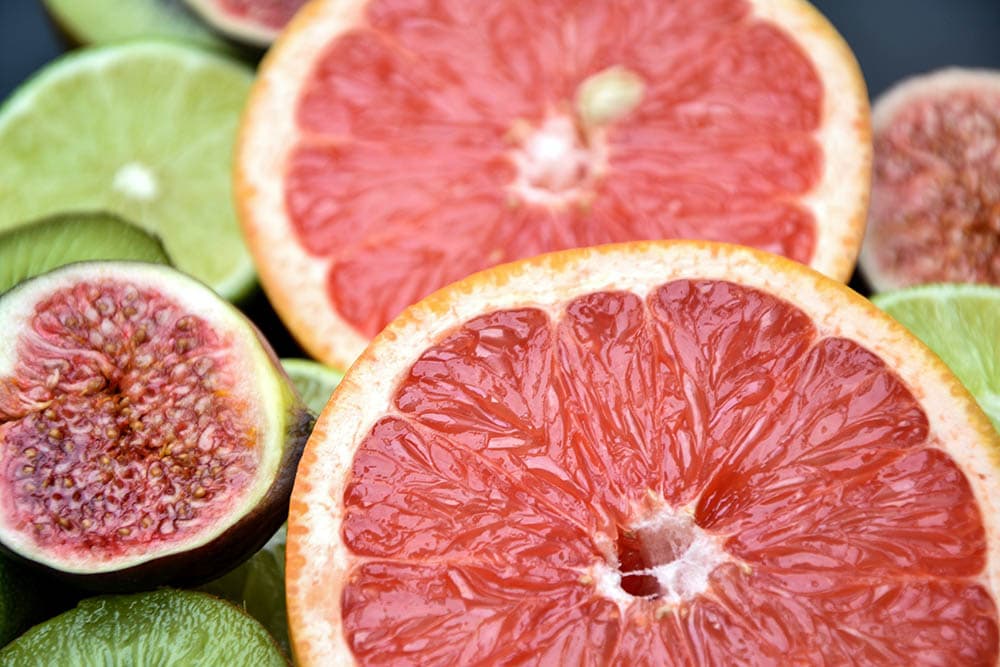
Frequently Asked Questions
What Odors Attract Mosquitoes?
Alright, now that we’ve covered all the scents that mosquitoes hate, let’s take a quick look at the scents that attract¹ them instead. Fragrances are on top of the list. Unless you want to turn yourself into a mozzie magnet, avoid using too much cologne or perfume. Lotions (products with added odors) also make you a prime target for female mosquitoes. In nature, these insects are attracted to flowers.
So, make sure there aren’t any strong flowery fragrances in your perfume or lotion. Skin bacteria and chemical elements released by our bodies draw pests in as well. We’re talking about lactic acid, carbon dioxide¹, salt, and potassium. Consider staying away from avocado snacks and bananas on a hot and humid day. The blood type also matters: type-O is their favorite; type-A is somewhat ignored.
Why Do They Bite Humans?
In contrast to popular belief, human blood isn’t the only thing that keeps mosquitoes alive. They feed on nectar from the flowers, honeydew, and, of course, sap (the watery fluid of plants). Why do they drink blood, then? Female bugs need it to carry out the eggs¹; in contrast, males (and certain mosquito species) make do without it and don’t bite. That is true both for humans and pets.
That’s right: the blood of most animals contains the necessary nutrients for these bugs to reproduce. So, have your pets checked regularly to protect them from viruses. The most dangerous diseases spread by these pests are malaria and yellow fever (both can be lethal). Fortunately, the chances of catching either of these viruses in the US are very low¹.

How Long Do Mosquitoes Live?
While this depends on the species (there are 3,600 types of mosquitoes living among us), the average lifespan¹ is 7–10 days for males and 2–5 weeks for females. When properly fed and kept in ideal conditions, female mosquitoes can last for as long as 4–5 months. This is interesting: once the female mozzie lays the eggs, it takes them 10 days max to reach maturity.
It’s a four-stage process: the egg comes first. Next, it turns into a larva and from there into a pupa. All this time the mosquito “baby” lives on the surface of the water (or, at least, near it). The insect only leaves the nesting ground once it turns into an adult (this usually happens around a week after the eggs are laid).
Conclusion
The smell of catnip or cinnamon won’t instantly kill an entire population of mosquitoes. It will, however, prevent them from biting you. As we learned today, these odors serve as repellents, forcing bloodsucking bugs to stay away instead of heading straight for you. Now, depending on where you live and the mosquito species, different scents will have a different effect.
So, it will take some “experimentation”, but once you find it, you’ll be impressed by the results. And, while mosquitoes are known to develop resistance to certain odors, it usually takes them a while to do that. And the best thing about this—the smells that mozzies hate are delicious for us, humans. That’s especially true for lavender, eucalyptus, and cinnamon!
- ClevelandClinic – Mosquito Bites
- WHAT DO MOSQUITOES EAT?
- CDC – About Malaria
- Gov – Yellow Fever
- com – Mosquitoes
- What Smells Are Mosquitoes Attracted To?
- 9 Scents That Mosquitoes Hate (And How To Use Them)
- ESSENTIAL OIL EXTRACTION METHODS
- Science News – Catnip repels insects
- 5 scents that deter mosquitoes
- WebMD.Com – Truth About Catnip
- What to Know About Cedarwood Essential Oil
- NIH – Cinnamon: A Multifaceted Medicinal Plant
- Clove – Uses, Side Effects, and More
- NIH – Efficacy of geraniol, linalool, and citronella
- WebMD – Eucalyptus: Is It Good for You?
- NPIC – What is oil of Citronella
- CDC – Prevent Tick and Mosquito Bites
Featured Image Credit: FotoshopTofs, Pixabay
Contents

